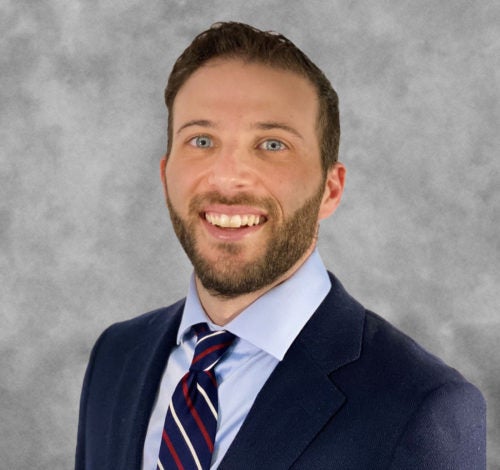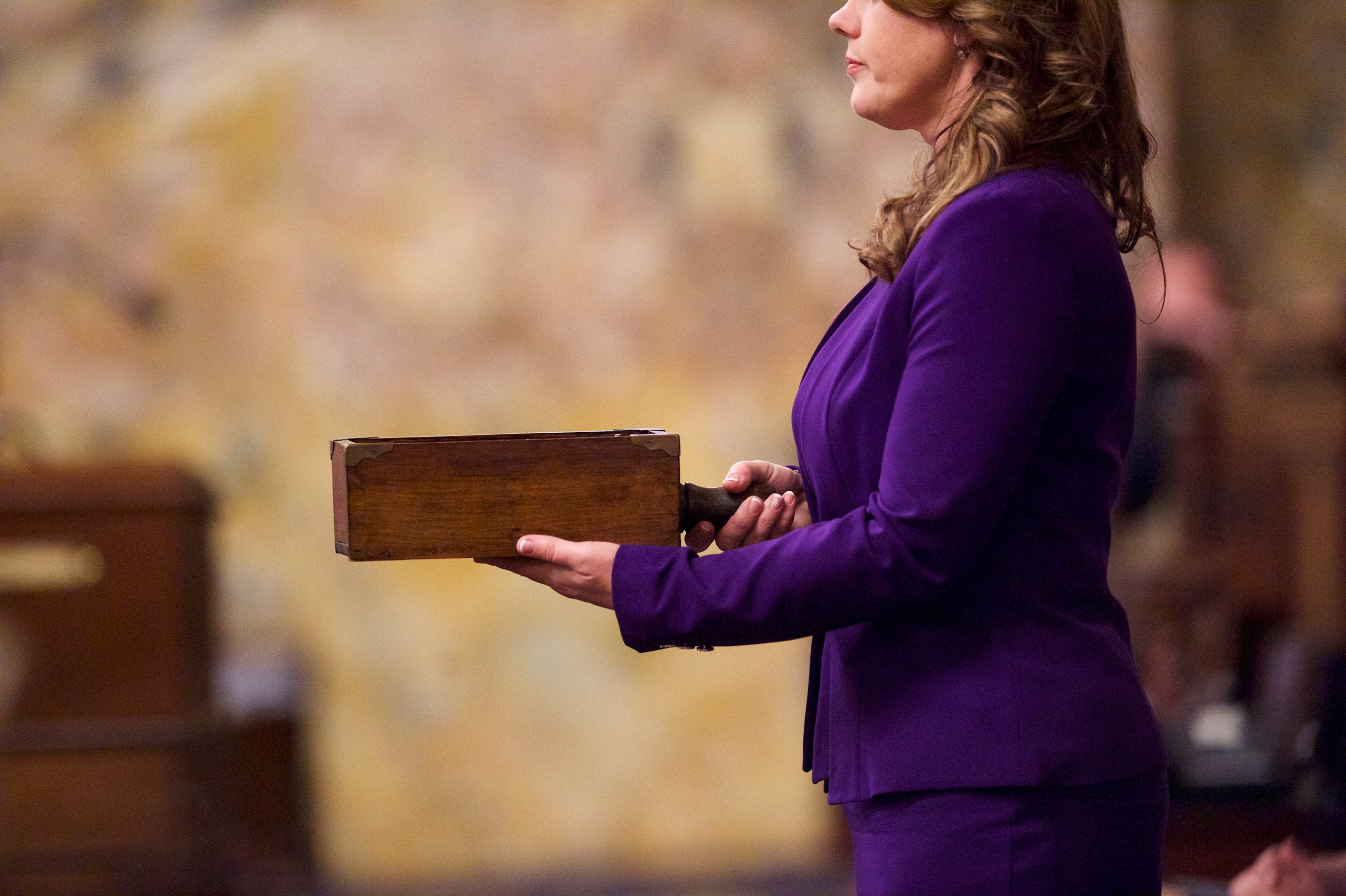During the 2016 presidential election, multiple presidential electors tried to cast ballots for people who didn’t win a majority of their states’ votes. After Colorado removed one elector and Washington fined three, the electors sued, arguing that the U.S. Constitution protected them from their states’ interference. In decisions recently handed down by the Supreme Court, the justices disagreed, ruling unanimously that states may choose to remove or punish so-called “faithless electors.”
Jason Harrow ’11 argued before the justices on behalf of a Colorado elector while Harvard Law School Professor Lawrence Lessig made the case for three Washington electors. Harrow is chief counsel of Equal Citizens, a nonprofit Lessig founded to improve American democracy. His client Micheal Baca cast his vote as an elector for an alternative Republican candidate as part of a failed effort to prevent Donald J. Trump from being elected. Harrow spoke with Harvard Law Today about what was at stake in the cases and where he believes U.S. electoral reform should go from here.

Harvard Law Today: What kind of discussion should we be having about the electoral college?
Jason Harrow: People don’t fully realize how this weird way that we select the president infiltrates into every part of our politics. It makes people think that not all votes are treated equally–because they aren’t. That means turnout is going to be lower, which affects our entire political system. And by having this unusual way of selecting the president, where only a few states are in play and it doesn’t matter if you win by one vote or a million votes, candidates play to a certain segment of voters. That segment … happens to be whiter and older, and happens to have a different economy than much of the new, high-tech economy. Other voices get represented less, and that has huge ramifications for the entire system.
HLT: How did the U.S. Constitution’s framers envision the role of presidential electors?
Harrow: The framers never thought we’d have the way of selecting the president that we have today. They thought that there would be an electoral college involving people of national stature, people like George Washington, who would gather and select the president. That didn’t happen in part because of the rise of political parties. But our point is they envisioned a method of indirect election. We basically asked: What are presidential electors there for? And the Supreme Court basically said they’re kind of good for nothing. That’s very unusual in our Constitution. But I guess that’s what it is.
People don’t fully realize how this weird way that we select the president infiltrates into every part of our politics
HLT: You argued that the so-called “faithless electors” were actually doing what they believed was most in accord with the will of the people in their states. How so?
Harrow: A lot of people think there’s going to be some elector who takes it upon him or herself to switch the election. That has never happened in U.S. history. What my client was thinking was that more people in Colorado wanted Hillary Clinton than Donald Trump. But, even though Clinton won Colorado’s popular vote, there weren’t enough presidential electors who were Democrats to make her president.
My client asked what would happen if electors in his position, as well as a handful of Republican electors, voted for John Kasich instead, so that no one got enough votes and the House of Representatives was left to decide between Trump, Kasich, and Clinton. What my client said was, given the strong signal that Colorado voters sent not only for Hillary Clinton but also against Donald Trump, why wouldn’t we try something that would deny the presidency to someone that so many Coloradans thought was unacceptable?
HLT: What are the next big legal fronts around electoral issues?
Harrow: We’ve seen at least two pandemic-related emergency decisions by the Supreme Court around procedures for holding the 2020 election that were divided 5-4, with the conservatives over the liberals, that denied expansions and modifications of voting rights in light of the pandemic. Those issues are going to continue.
The constitutionality of the national popular vote interstate compact, which is a way to achieve the national popular vote without a constitutional amendment, could potentially end up at the Supreme Court. Chief Justice Roberts asked about that at oral argument. It needs states with a total of 270 electoral college votes to all be part of this agreement in order to take effect. It’s at 196 right now so it’s not super far away, but it needs 4 or 5 tough-to-get states.
We think the decisions in our cases make the compact legally stronger because one thing that people were concerned about was whether a state can look outside its borders and say we’re going to award our electoral votes to whoever wins the national popular vote, as opposed to just the statewide popular vote. And the Supreme Court’s opinion here today says states have very broad leeway.
